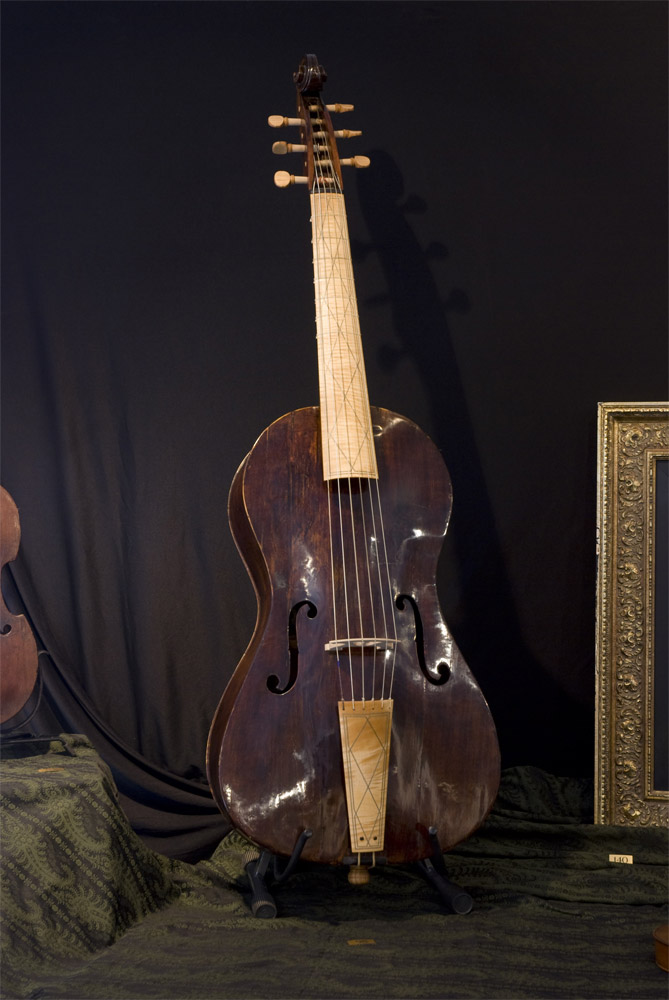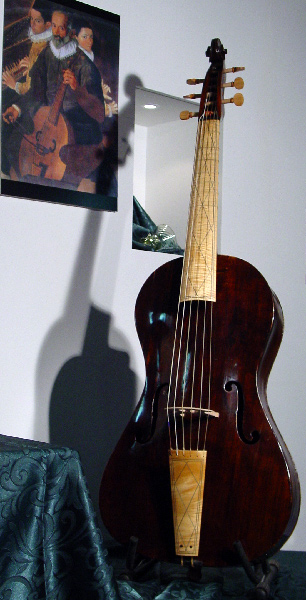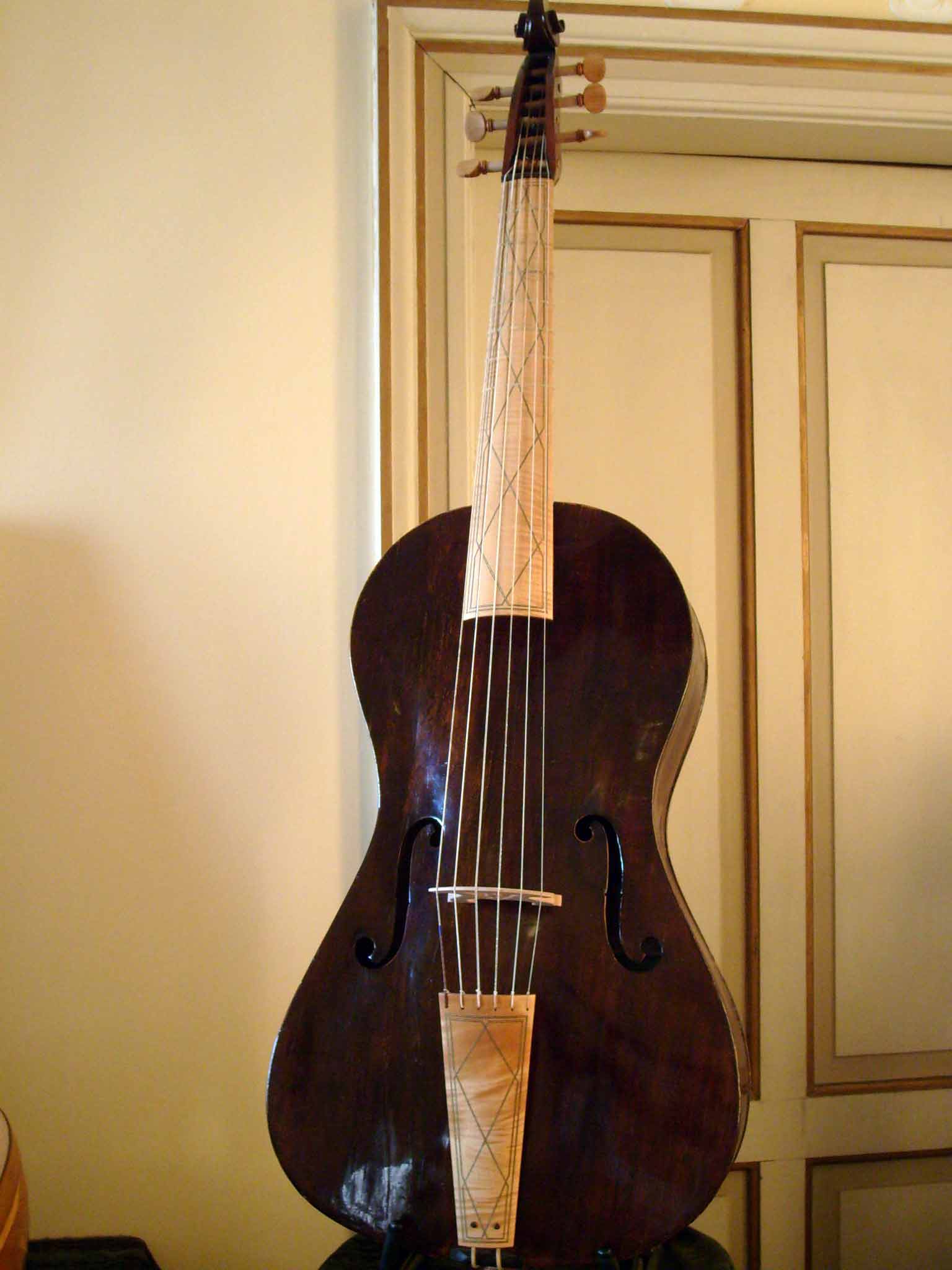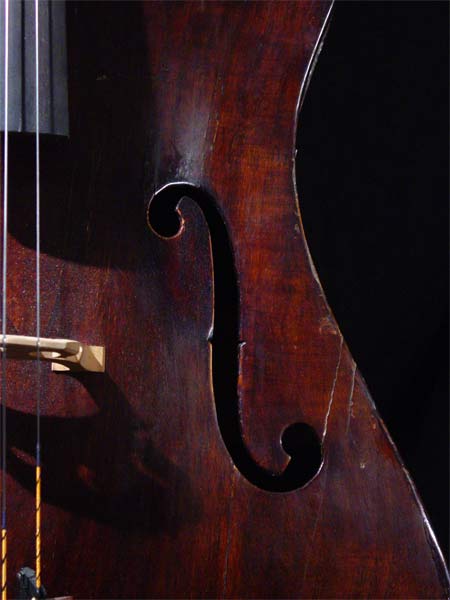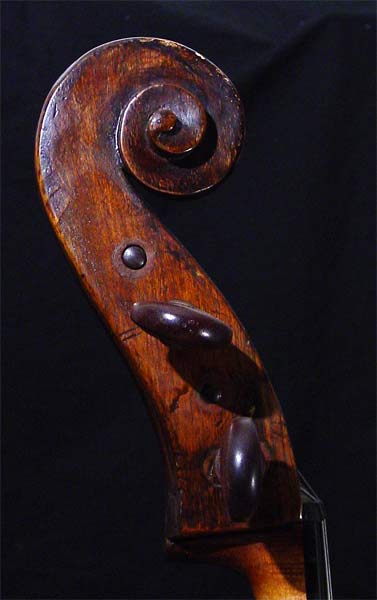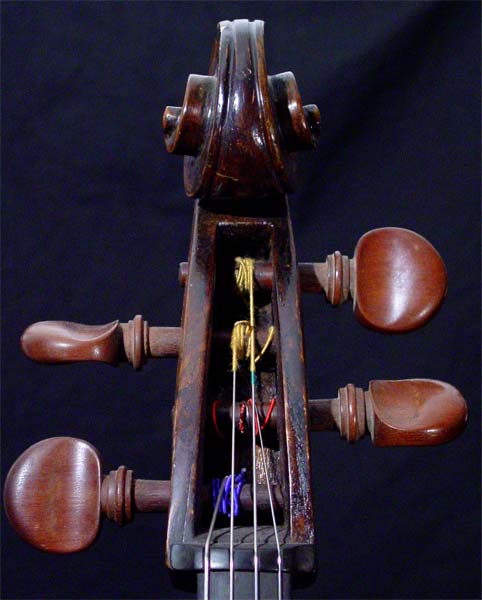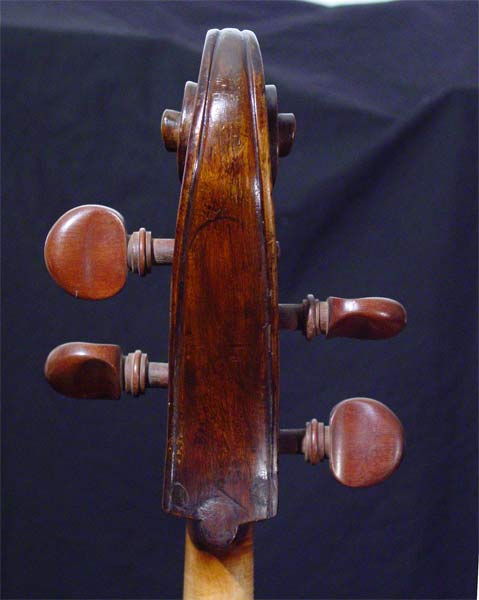| Recent evidence brought to light that this instrument is actually exactly what its label purports it to be, a bass viol by Paolo Antonio Testore, Milano, 1717. Although common in the 16th C., this shape of viol, called "figure eight" or "cornerless" or "guitar-shape", is often encountered throughout the 17th and up to the middle of the 18th Century, particularly in Italy. A number of viols by Grancino (Milano) and Petrus Guarneri (Cremona, later in Mantova) made in this form survive, dating from the beginning of the 18th Century. |
